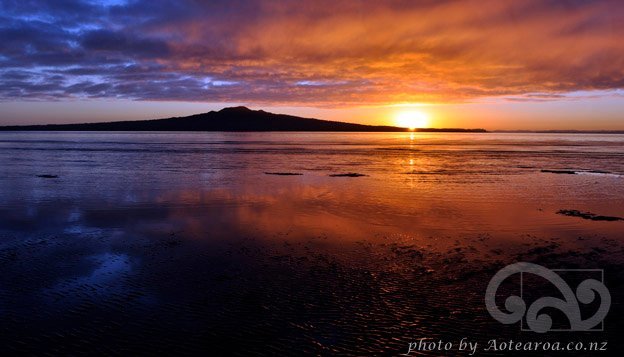Nau Mai, Haere Mai: Our CEO becomes a citizen – and sees New Zealand in a new light

I came to New Zealand from England by ship. The Ocean Monarch to be exact. It was the spring of 1973. My kids laugh when I tell them I came by ship. I imagine it seems odd to them and makes me seem old. I guess I am and I guess it is. But arriving by ship is a special memory as the view of a land for the first time from the sea has a peculiar impact. A young boy on deck, not having a clue what to expect, not long awake and seeing for the first time the islands of the Hauraki Gulf and especially the imposing sight of Rangitoto as we approached our new home, is something I will never forget.
Our first home was in Mangere. A fresh new suburb populated by an eclectic mix of migrants like us but with an emphasis on the Pacific Islands. It never occurred to me that this was strange, my friends were a cultural mix, the vibe was one of optimism and my mate’s dad, across the road, worked at Tip Top so there was always plenty of ice cream. Norman Kirk was Prime Minister.
In 1974 we moved to Northland and more specifically Kohukohu in the Hokianga. It was here I learned what it meant to be in a minority. It was tough. But over time I was accepted for my difference and my family, particularly my father, became part of the community. He still calls Northland home. I spent a great deal of my time in solitude, exploring the harbour and the land. I believe my connection to this part of New Zealand has its origins in those times alone in the landscape.
Fast forward 40 years and on Thursday the 7th of July I became a citizen of New Zealand. It might seem strange that after all this time I’d bother. After all, there are no particular benefits that I don’t already enjoy through residency. My motivation to pursue citizenship was emotional, centred on the need to convert my de-facto relationship with New Zealand into one that involved greater commitment from me to this country and its people. It was also based on fear. Fear that one day my status of resident might be undermined by political and social change.
The citizenship ceremony itself was a revelation. The Town Hall felt, for the first time in all my experiences of the building, like a town hall. As we filed through to the great hall our respective family and friends found their seats in the circle. There was a palpable sense of expectation and optimism. The Kaumatua from Ngati Whatua was gracious, warm and welcoming while Mayor Len Brown was at his goofy and charming best. Various local body politicians, an MP and staff from Internal Affairs assembled on stage to welcome the new citizens, perhaps as many as 400 of us. It felt like a school prize giving.
One by one we were called to the stage to have bestowed upon us our certificate of citizenship. We swore allegiance to Queen Elizabeth and while this might seem anachronistic, it felt very appropriate in this context, given her place as the representative of one of the signatories to the Treaty of Waitangi. The new citizens’ willing embrace of our indigenous culture was no more manifest than witnessing people of many nations clumsily attempting to hongi the Kaumatua. He was generous in the act.
There was laughter, joy, applause for every one of us and an enthusiastic rendition of our national anthem. I felt a deep sense of belonging.
The final act was the naming of all the countries of origin of all the new citizens. 51 in all and from every continent on the planet. Each group of nationals rose from their seats as their country was called in a celebration of where they had come from to be part of Aotearoa New Zealand. There were whoops of joy and rapturous applause.
This ceremony was in stark contrast to the ugly global narrative around migration at present. Our nation was built on the migration of peoples from all over the world, starting with Maori, the first people. This is something for us to cling to, to cherish and to celebrate. The diversity of our culture and the largely tolerant society we enjoy is not only joyful, it is an economic advantage.
Nau Mai, Haere Mai.





